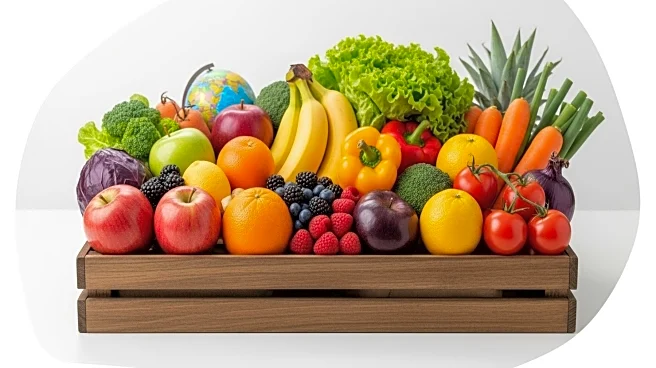What's Happening?
South Africa is hosting the G20 in 2025, with a focus on agriculture, food security, and trade. Wandile Sihlobo, chief economist of Agbiz, discussed key takeaways from the recent G20 Agriculture Ministers’ Meeting held in the Western Cape. The meeting emphasized boosting global food security, strengthening resilient supply chains, promoting sustainable farming practices, and reducing trade barriers. The B20, the business arm of the G20, is recommending strategies for the agricultural sector to align domestic policies with global best practices while considering local realities.
Why It's Important?
The discussions at the G20 Agriculture Ministers’ Meeting are crucial for shaping global agricultural policies that impact food security and trade. By focusing on sustainable practices and resilient supply chains, the meeting aims to address challenges faced by farmers worldwide. The recommendations from the B20 could help countries like South Africa and others in Africa to integrate global standards into their domestic policies, potentially leading to improved agricultural productivity and trade opportunities. This alignment is vital for ensuring food security and economic growth in the region.
What's Next?
Countries participating in the G20 will likely work on implementing the strategies discussed during the meeting. South Africa and other African nations may focus on aligning their agricultural policies with the global best practices recommended by the B20. This could involve policy reforms, investment in sustainable farming technologies, and efforts to reduce trade barriers. The outcomes of these initiatives could lead to enhanced food security and economic development across the continent.
Beyond the Headlines
The emphasis on sustainable farming practices and resilient supply chains highlights the growing importance of environmental considerations in global agricultural policy. As countries work to implement these strategies, there may be increased investment in technologies that support sustainable agriculture, such as precision farming and renewable energy sources. These developments could lead to long-term shifts in how agriculture is practiced globally, with potential benefits for both the environment and food production.









